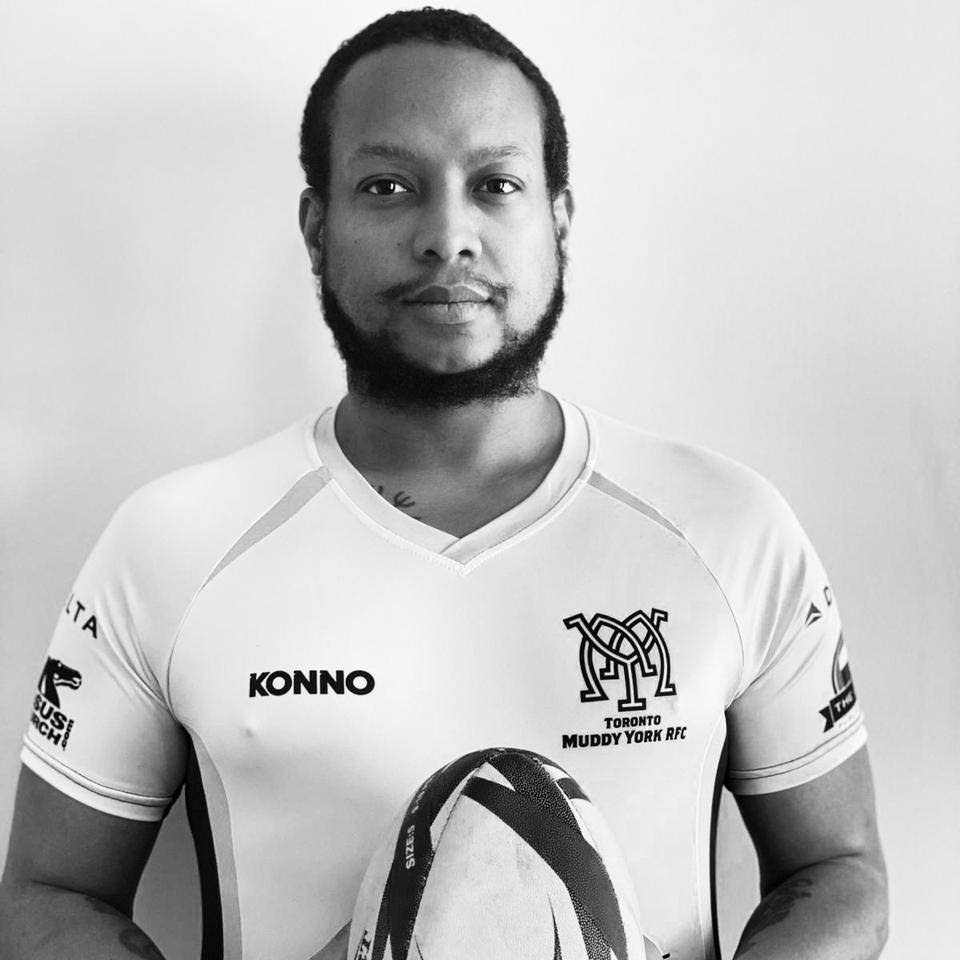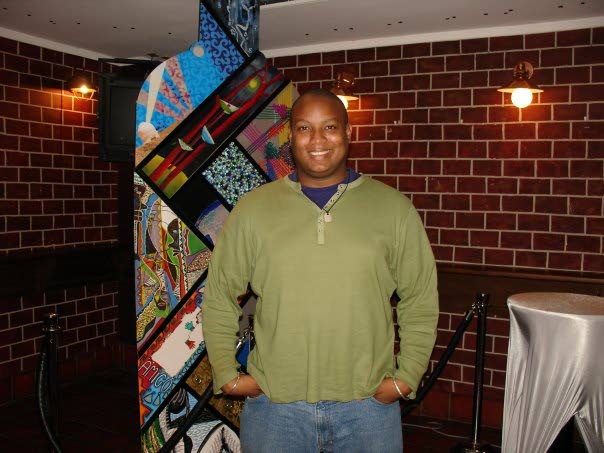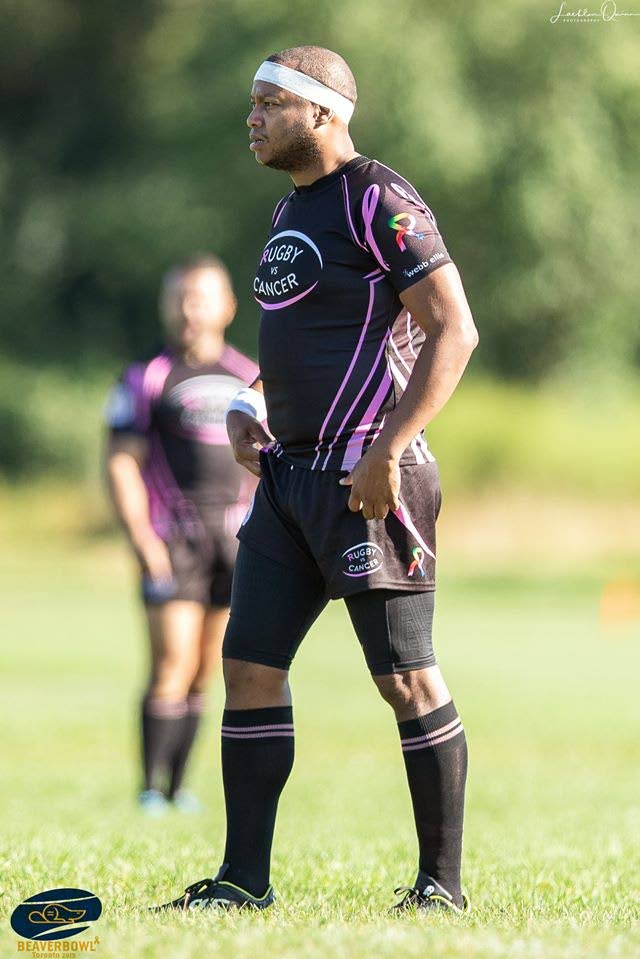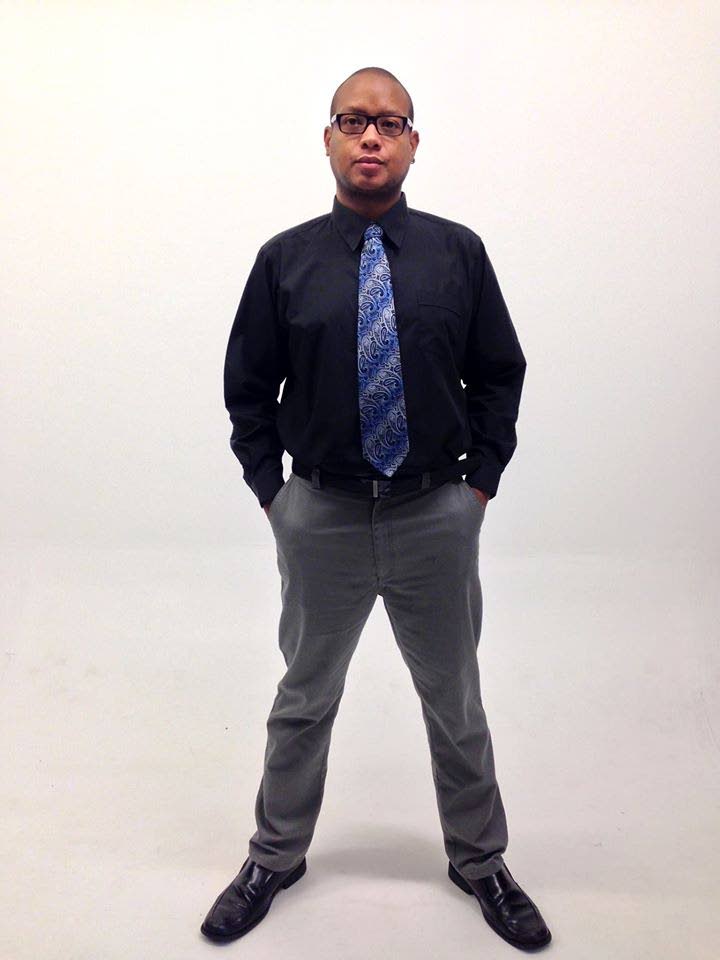From couch potato to rugby captain

Ian Royer, 36, is a successful public relations and marketing consultant based in Toronto.
He's just been made the operations manager for a company called Wattpad Stars, and also runs works remotely as the creative director and publicist at Anansi Tales Marketing in TT.
But he was doing less well in other areas of life – and got a health scare in 2008 which demanded immediate change.
At a time when he realised he was feeling out of control when it came to his health, he began working with a client who is a doctor.
He explained, “I was overweight in my mid-20s and hit a bit over 300 pounds at my heaviest, and my family has a predisposition to diabetes, high blood pressure and glaucoma.”
The doctor recommended several tests to check his general health – and they showed his blood sugar levels were at an all-time-high.
“She told me if I did not do something about it, I would be at risk of a heart attack and possibly dead before 40.
"That was my first wake-up call. My blood sugar levels have reduced to 6.7 per cent out of 14 per cent – 14 being the most dangerous point. When I started my fitness journey I was at 12 per cent. So I am still diabetic, but I am working hard to get it down to five per cent, which would place me at a 'normal' level on the diabetes control chart."
Drastic change is never easy, and Royer added, “A big problem people face when it comes to obesity is the shame that comes with it.
“Going to the gym in an attempt of getting control of health is more mentally and emotionally draining than the rigorous physical activities.”
But after pushing through this mental and emotional hurdle, through self-motivation and with encouragement from friends, he felt comfortable working out in a gym.
“My best friend Shannon Hutchinson, who is a pilot and artist, is also heavily into fitness. She competed in bodybuilding competitions and is also a fitness model.

"So when I started talking to her about this new fitness journey she told me the first thing I needed to do was drink a gallon of water every day – 'for the rest of your life.'”
Royer saw the immediate benefits of staying hydrated at all times. They included always feeling full, which curbed his appetite, and helping cleanse his system.
“From there I integrated even more workouts.”
He also went from eating whatever he wanted to cutting back on processed food, reducing sugar intake and measuring calories.
"I now eat less carbs like macaroni pies and no longer consume sweet carbonated drinks. I now have lots of protein from chicken, peas and tofu. My diet now includes lots of salads and sweet potatoes."
After moving to Canada in 2016 Royer had access to a wider range of options for physical activity.
“I had a doctor there who got me on a tailored diet. I was guided on how to properly cook the most ideal food for my health and cut out all processed sugar – which was hard.
"Sugar is so addictive. I would be so angry all the time.”
Within a year of changing his diet, even with what he said was minimal exercise, Royer said his weight dropped dramatically.

“I dropped maybe 40 pounds in 18 months. Last January, after losing all the weight I could have, which was about 50 pounds – I started playing rugby.”
The game was perfect for him. It tapped into his natural athletic abilities, plus: “My body type gave me an advantage,” and, fortunately, “I love the sport."
He's now the president of the Toronto Muddy York Rugby Football Club and sits on the Rugby Board of Toronto.
Being a very active sport that includes a wide range of motion, rugby took him from 260 to 226 pounds in about six months.
In addition, "Now I am fortunate to have a personal trainer who helps me with balancing nutrition with weight loss.”
This has been far from an overnight process.
“It took four years for me to get where I am. It called for consistent hard work. "A change in diet alone isn’t the answer. It calls for a change in lifestyle.
"So even for recreation, I moved away from drinking beers to drinking vodka and soda, because it has fewer calories. I had to become more conscious of what I had to put into my body.”
Asked if there was a correlation between the changes for the sake of his health and changes in other areas of his life, Royer said, absolutely.
“I joke about these changes all the time. Before, I was not a morning person. Now I am up before the break of dawn, because I have more energy. I sleep better, which results in me feeling better. I am so much less lethargic. I now feel like I have more hours in the day – I can fit so much more into a day.”
Royer stands at six foot one, so he never felt "big," because his height allowed him to carry weight well. But after losing weight, he realised that reduced stress on his joints, which enables him to be active for longer periods.
“It changed everything about my life.”

Photo courtesy Ian Royer -
Royer spends most of his workday sitting at a computer, but says his workout time is something he can look forward to every day.
During the lockdown in response to the spread of covid19, he said he and his team members maintained their training routines via the digital video conference platform Zoom.
He's proud of his 180-degree lifestyle turnaround. But he understands how daunting the prospect may seem for people who are where he was four years ago.
He knows, "Gyms can be scary. There might be people who will try to fat-shame. But that is life. That cannot be avoided, based on the unrealistic expectations of how people should look.”
Since he started posting online about the changes in his life, people have contacted him for advice.
"I am happy to have been able to help some people take control of their health.”
On maintaining the balance between work and an athletic lifestyle, he said, “Don’t believe the myth that you need to live in the gym. You just need 45 minutes to an hour per day.
"Cook for what you need. Remove processed sugar if possible. Be careful of ingredients used when cooking and pay attention what the diet contains, based on the changes someone wants to make to their body.”
For people who may not be able to afford a personal trainer or gym membership, he said the process starts with accepting a change must be made. It is also important for people to erase any guilt that tells them they did this to their body –that makes the process more challenging.
“Learn how to cook new things and have fun with it. There is a tonne of information online, which includes apps for monitoring things such as caloric intake. When exploring information online, just remember to be careful, as with anything online," he adds.
"There are also free services in TT. Every health centre in TT has a dietitian and nutritionist to help with guidance on best diet practices, depending on the health conditions."
He stresses the usefulness of having some kind of support, whatever your budget and resources.

He explains, "Support helps you with accountability and can help you going at it. You will need someone to push you, but someone to help you to be gentle with yourself – to remind you Rome was not built in a day. Over time you will build that strength and endurance.”
You need to remember consistency is key and not to expect immediate results.
“There will be a time when exercise usually moves from feeling like a chore to becoming something enjoyable. It may take a year to get over the rough patch.
"So manage expectations and remember – true, lasting change takes time.”

Comments
"From couch potato to rugby captain"